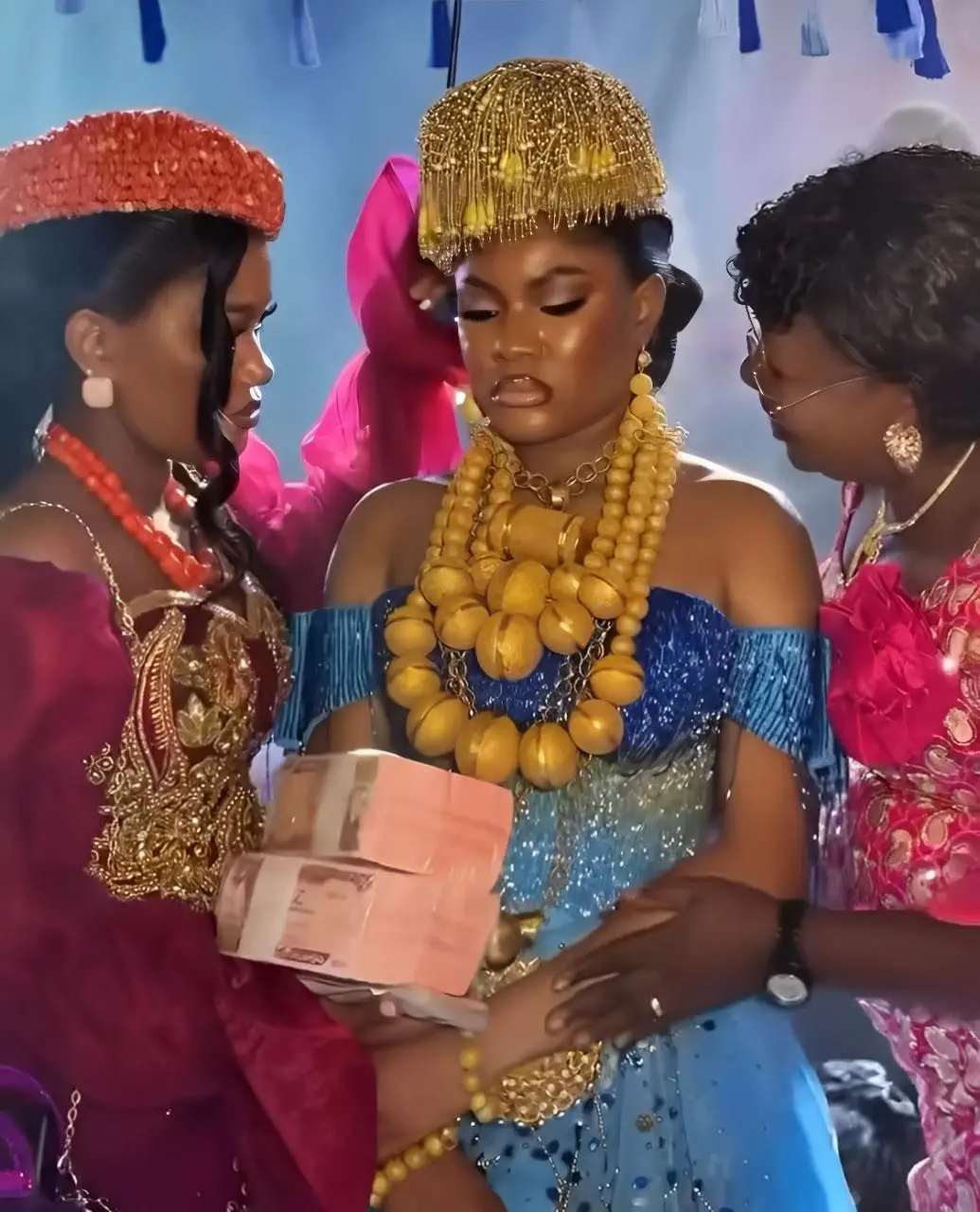Weddings are usually all about smiles, laughter, and joy. But in some Ijaw (also known as Izon) communities in Nigeria, the bride takes a different approach—she doesn’t smile. Not even when the groom, his friends, and family are joyfully spraying her with money. And no, she’s not sad or being forced into anything. She’s simply following a powerful cultural tradition.
You may have seen clips online of brides with a straight face in the middle of what looks like a party. To outsiders, it might seem strange. But in this tradition, the bride’s serious expression is intentional—and meaningful.
Who Are the Ijaw People?
The Ijaw are one of Nigeria’s oldest ethnic groups, mostly found in Bayelsa State and across the Niger Delta. Their history runs deep, with spiritual and cultural roots that have been preserved for generations. They speak several dialects and are known for their strong connection to tradition and ceremony.
Historically, the Ijaw trace their ancestry to the ORU people, believed to have migrated from the Nile Valley and Lake Chad region. Their customs reflect a rich spiritual worldview, one that especially honors the role of women.
Why Doesn’t the Bride Smile?
In many Eastern Ijaw clans, there’s a striking wedding tradition: the bride must not smile until the groom and his family have “earned” it. What does that mean? Through the spraying of money—a symbol of appreciation, love, and readiness to care for her—the groom shows he’s committed to making her happy.
Her smile, when it finally comes, is a powerful gesture. It says: “You’ve shown me respect, you’ve honoured me, now I accept this union.”
It’s not about greed or gold-digging. It’s about assurance. Respect. Commitment. A man must demonstrate, not just say, that he is ready to support and cherish his bride.
A Spiritual Layer: Woyengi and the Elevation of Women
This tradition is more than cultural—it’s spiritual. In Ijaw cosmology, the world was created by a female deity named Woyengi, meaning “our mother.” According to legend, Woyengi descended from the sky in a flash of lightning, sat on a throne, and began creating humans from the earth.
She gave them free will—to choose their gender, their path in life, and even how they would die. Because the Ijaw see their creator as female, women are deeply revered. Weddings, in turn, are a chance to celebrate and uplift women—not just as wives, but as life-givers, decision-makers, and sacred beings.
Not a Universal Ijaw Practice
It’s worth noting that this smiling tradition isn’t observed by all Ijaw clans—it varies from region to region. But where it is practiced, it holds deep meaning. It’s a statement of value, honour, and love.
So, the next time you see an Ijaw bride keeping a straight face while money rains around her, don’t mistake it for sadness. She’s standing in power, in tradition, and in the knowledge that she is cherished—waiting for the moment her smile will seal the celebration.
Watch the video below:
View this post on Instagram
























